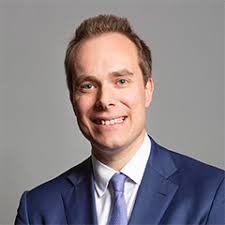David Johnston – 2022 Speech on the State Pension Triple Lock
The speech made by David Johnston, the Conservative MP for Wantage, in the House of Commons on 8 November 2022.
Today’s motion is curious because, next week, we will get the decision on this issue, but let us leave that aside for a moment. Last year, I spoke in a debate on the triple lock. At that point, we had the highest level of basic state pension in relation to earnings in 34 years. At that point, it had increased by £2,050—it is now £2,300. Along with auto-enrolment, that has been one of the most significant policy decisions taken by this Government not just in pension policy, but in domestic policy much more broadly. We now have more than 19 million people auto-enrolled in workplace pensions, which is a fantastic achievement. But of course we do not just support our pensioners via the triple lock, generous though that has been. We know that pensioners spend a higher proportion of their money on energy, and there they have had a £400 reduction. They have had an energy price guarantee, which will save, on average, £700, and a winter fuel payment topped up by a pensioner cost of living payment, worth up to another £600.
We have to think about the poorest pensioners and not just think about pensioners as one big group. There we see a further cost of living payment of £650. We see cold weather payments if the temperature of their homes drops below a certain level. Underpinning both those things, we see pension credit. We have to get more people to claim it who are eligible for it because it is worth on average £3,300, which is yet more support. Time and again, both on the triple lock and on the other support the Government give, they have been very generous and constantly thought about how best to support pensioners.
When it comes to Labour motions and Labour Front-Bench speeches, I look for what is not there as much as what is. The motion is specifically about keeping the triple lock for the coming year. As I say, we will get the decision next week. The motion does not say where to get the money for that, but let us leave that to one side for now, even though it is several billion pounds. More importantly, it does not say anything about what should happen beyond that. I listened carefully to the shadow Secretary of State to see what his view on future pension policy might be, but I am afraid that I did not hear much. That is notable because week in, week out in this House what we are hearing from the Front Benchers is, “The next Labour Government will do this” and, “The next Labour Government will do that” but we did not hear that today on pension policy.
Pensions are the second highest category of expenditure after health, so a party that hopes to form a Government ought to have a view about what it wants to do on pension policy that is not just, “We will continue Conservative policies” or “We will support all the expenditure but we will not support any reductions in other areas.” I hope that in his wind-up we might hear from the shadow Minister, the hon. Member for Cambridge (Daniel Zeichner), for whom I have a lot of time, what Labour’s view of pensions might be. If the answer is, “We would have to look at the finances to understand what we will do” that is precisely what the Government have been doing to form their decisions next week.


